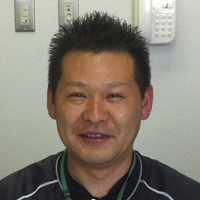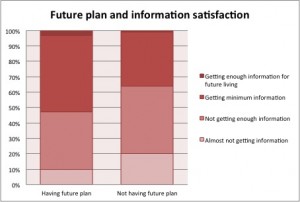“Ai Sansan Meal Delivery” expanding in Shiogama, Miyagi
Varieties of attempts to nurture entrepreneurs and start up have been conducted in the disaster area affected by the Great East Japan Earthquake in March 2011. 600 entrepreneurs were supported JPY 3 million grants each by the Cabinet Office to create jobs for local market. Some of these trials are paid off, but “not a few entrepreneurs couldn’t manage business and run out of cash, then have to rely on next government grant to survive” said by Tomohiro Takei, president of MAKOTO, general incorporate association supporting business creation in the area. Early stage social business could be supported by social consumers buying products for philanthropic purpose. But product differentiation and positioning are necessary to sustain the growth.
A few good examples exist. Ai Sansan meal delivery was founded in March 2013 in Shiogama in Miyagi prefecture to serve meals for elderly people requiring nursing care. The company was founded by Katsuyoshi Obi, having start up experience in Tokyo. His mother couldn’t enjoy meals at the last moment and passed away. Therefore, he set family and filial love as a corporate identity and created the company to devote his life to serve appropriate meals for elderly people in the affected area.
Obi has clear strategy and market analysis in addition to the affection. Comparing the disaster area with other unaffected locations, 2x growth rate of people requiring nursing care and 2x job application ratio of nursing care exist. The company provides sufficient and detailed care for elderly people to take meals as he assumes the time to help them eat would be decreased because of the time reduction of nursing support caused by the legal policy change. The trained staffs also conduct safety confirmation and dosing check. He hires local elderly people as delivery staffs and disabled people as staff in the kitchen to cut the cost. Also he could form a partnership with the largest nursing care meal factory in Tohoku area. He has expanded the business network with local government, hospital and nursing care management companies in the past 3 months and now serves 35 meals per day. He would create a solid model in Shiogama then plans to expand the model to other areas.
In many cases, this kind of social business don`t expand rapidly and the founders do not want it. However, rapid expansion through cash injection might be required to accelerate solving social issues. Investment from venture capital seeking for high growth deals seems difficult in this case. Therefore, raising money from corporate partners could be required. And it would help them cope with emergence of competitors and change of market dynamics. According to Reiji Yamanaka, instructor of Tohoku social venture program in Globis, one of the biggest business school in Japan, definition of social venture is “an entity achieving both social mission and high growth”. We expect to see real social venture from the affected area having key success factors such as capable management, promising market, product differentiation and value proposition as we could see in typical high growth start-ups.
Akira Kurabayashi
Senior Director, Corporate Development, Salesforce.com, inc.






